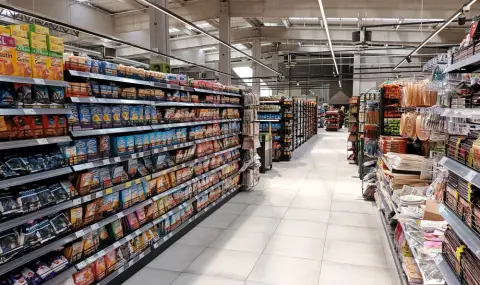A new two-day boycott of shops in Bosnia and Herzegovina, initiated by an informal group of citizens, begins today in the Balkan country, HINA reported, BTA reported.
The group called for a boycott via social networks in response to the constant rise in prices of basic food products, despite announcements from the governments of the two autonomous regions of measures to limit them.
The government of the Federation of Bosnia and Herzegovina announced that it will decide to "freeze prices" on a total of 50 products on a total of 50 products, while the government of Republika Srpska announced increased inspections and sanctions for retailers for unjustified price increases.
Federal Trade Minister Amir Hasičević said on Tuesday that the government of the Federation of Bosnia and Herzegovina plans to reduce prices and keep them lower for at least 50 basic food products, in an effort to reduce the overall cost of living for citizens.
According to data from the tax authorities of the two districts in Bosnia and Herzegovina, the first boycott of shops organized by Bosnian citizens on the last day of January was not successful, HINA recalls. Citizens' initiatives in Bosnia, Croatia and neighboring countries continue to put pressure on authorities and retailers to prevent further unjustified price increases for essential goods.
According to the Dayton Peace Agreement, which ended the Bosnian war, the country was divided into two semi-autonomous parts - the Republika Srpska, populated mainly by Bosnian Serbs, and the Federation of Bosnia and Herzegovina, home to Bosnian Muslims (Bosniaks) and Bosnian Croats. Each part has its own government, parliament and police, but the two parts are linked by common state-level institutions, including a judiciary, army, security services and tax administration.
